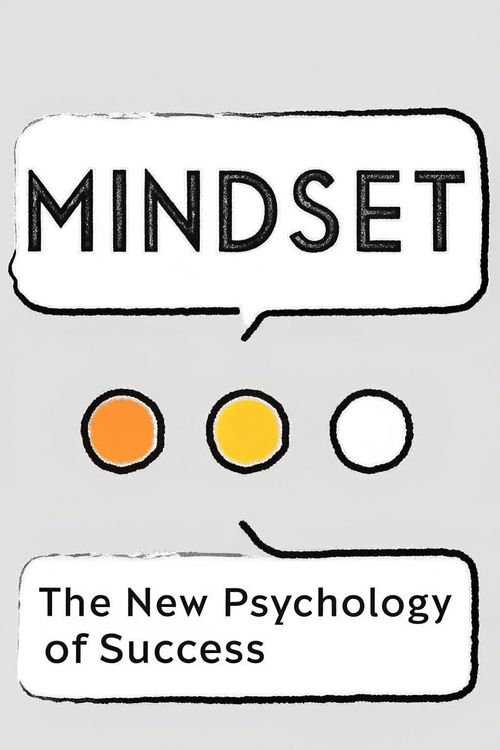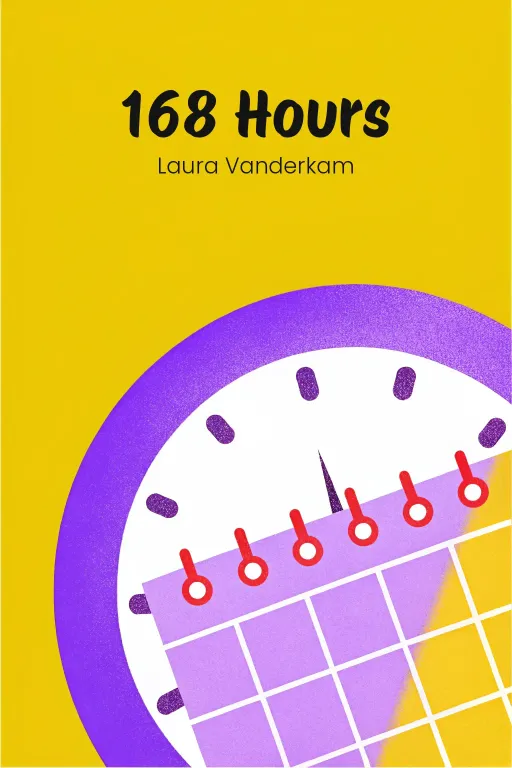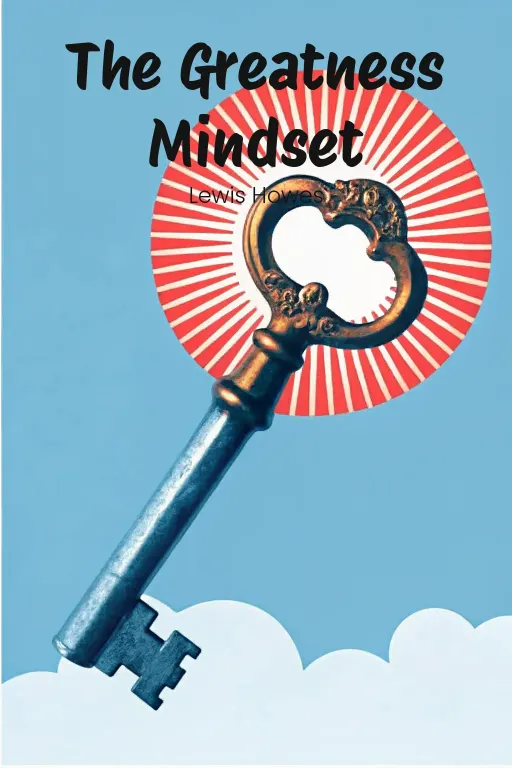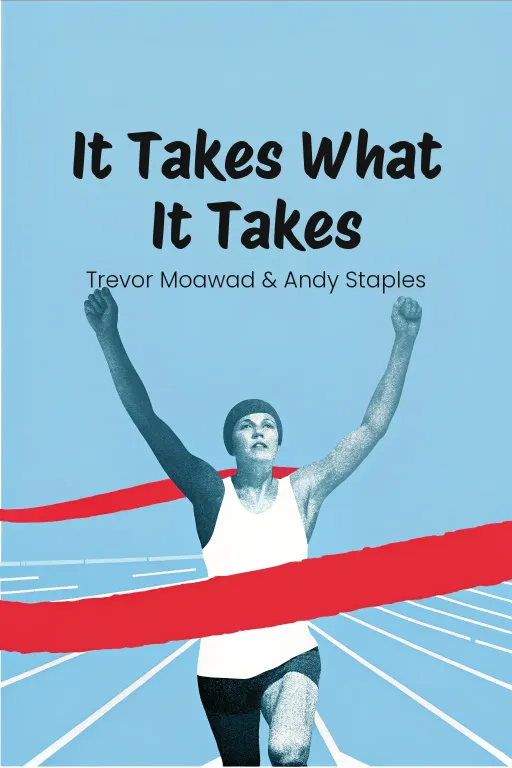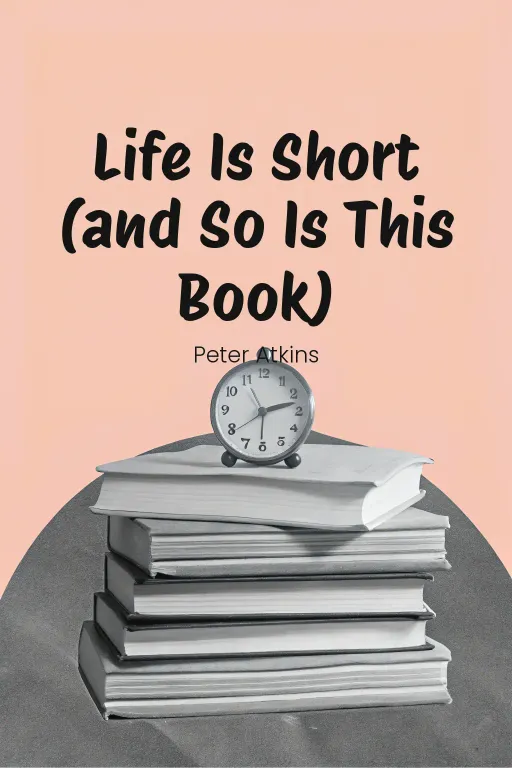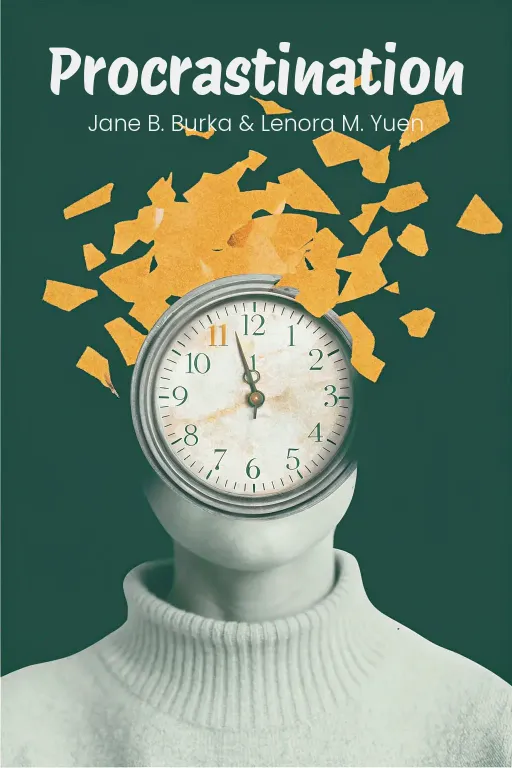
Ditch "All or Nothing": Actually Finish!
Podcast by Beta You with Alex and Michelle
Give Yourself the Gift of Done
Ditch "All or Nothing": Actually Finish!
Part 1
Alex: Hey everyone, welcome back to the show! So, let me ask you this: how many times have you set a really big goal, something you were super excited about, and then… just gave up on it somewhere in the middle? Maybe it was learning Italian, training for a 10K, or finally decluttering that spare room. Seriously, why is it so darn hard to actually “finish” things? Michelle: Yeah, tell me about it. I sometimes think it's because we're always striving for this impossible ideal, right? Like, if we can't do it perfectly, why even bother? It's like chasing a rainbow – beautiful to look at, but you're never going to reach the end of it. But is perfectionism really the biggest reason we fail, or are there other things going on? Alex: Well, that's exactly what Jon Acuff looks at in his book, Finish. He really digs into why so many of us struggle to complete our goals, and he points to things like distractions, fear of screwing up, and, yeah, that old perfectionism, all working against us. But the good news is, he's got some really practical tips to help us get past all that stuff. Michelle: Okay, so what's the plan of attack here? What are we going to unpack from the book today? Alex: We’re going to break down three core ideas. First, we'll see how perfectionism actually “hurts” our progress – it's way more subtle than you think, Michelle; it can even disguise itself as ambition! Second, we're going explore strategies like, get this, ‘cutting your goals in half’ to make them feel, you know, actually doable. And third, we are going to talk about celebrating small wins and how that's the “real” secret to keeping yourself motivated. Michelle: Hmmm… So, it’s less about, like, powering through and more about being strategic about it? That sounds like a plan I can actually get on board with. Alright, let's dive in!
Perfectionism as a Barrier to Completion
Part 2
Alex: So, speaking of breaking things down, let's dive into the root of the problem: perfectionism. It’s so insidious, right? It masquerades as ambition, as high standards, and all that. But like Jon Acuff points out in Finish, it's a huge reason why we don't actually finish what we start. Michelle: Exactly! It’s a total wolf in sheep's clothing, promising motivation but really just setting you up for a fall. Acuff talks about the "Day After Perfect," and man, that hit home. That's when the whole thing unravels. Alex: Totally. It’s that moment – you skip a workout, have that cookie, or miss a day of language practice. Instead of just shrugging it off, perfectionism tells you the whole project is doomed. Michelle: It's like, if the plan isn’t airtight, we just scrap the whole thing. Which is so backwards! Isn't the point of a goal just to keep moving forward, messiness and all? Alex: Exactly, but perfectionism rewrites that story. It shifts the focus from “getting better” to “flawless execution,” no matter the cost. Acuff even says perfectionism breeds fear – fear of not meeting that impossible standard – and that fear just freezes you in your tracks. It's why we bail after just one mistake. Michelle: Okay, Alex, but let me push back here. Hasn't the pursuit of perfection led to some incredible breakthroughs? I mean, would we have the Mona Lisa if Da Vinci was all about "good enough"? Alex: Well, think about it—he actually took years to finish the Mona Lisa. He didn’t let perfection grind him to a halt. Instead, he worked bit by bit, letting the process unfold. Acuff isn’t saying don’t aim high; he’s just saying don’t let perfectionism decide whether you finish or not. Michelle: So, aiming high, great. Obsessing over every last detail? That's the danger zone. Does Acuff have data to back this up? Alex: Absolutely. He points out that something like 92% of New Year's resolutions fail. And in his own survey, 97% of people admitted they gave up on goals simply because they weren’t executing them perfectly. It's not about talent or effort; it’s that "one slip-up means total failure" mentality. Michelle: Wow, those numbers are insane. Perfectionism is like this constant shadow over everything we do. And you know, I see it in my own life—like when I was supposed to do my thesis in college. I’d write a couple of sentences, hate them, and just…give up. Classic "all or nothing," right? Alex: Exactly! Acuff calls it "all or nothing" thinking, and it’s a trap we all fall into. Even in small ways, like starting that gym routine. Miss a day, and boom, you feel like the whole thing is a write-off. Instead of just being one day missed, perfectionism tells us we've completely failed. Michelle: Okay, so how do we break free? What’s the antidote to all this? Alex: Well, Acuff says to shift from "perfect" to "progress." Reframe those mistakes, those missed days—they're just part of the journey, not some final judgment on your ambitions. Imagine you're doing a puzzle. Missing a piece doesn't mean you toss the whole thing. You just keep going. Michelle: Right, and eventually discover it under the couch cushion. Makes sense. But in the meantime, how do you stay motivated, especially when that perfectionist voice is screaming at you to quit? Alex: Acuff is big on celebrating small wins. Seriously, this is key. Instead of dwelling on what’s left to do, or where you messed up, actively celebrate every single bit of progress—no matter how tiny. Michelle: I like that. It’s like tricking your brain into hanging in there by feeding it little treats. Alex: Exactly! There’s actual science to it. Celebrating progress releases dopamine, which reinforces the behavior. It keeps you going. Michelle: So, instead of stressing about running a marathon, celebrate every mile you log. Or if you only wrote 100 words, celebrate the fact that you wrote something today. Alex: That’s the idea. And Acuff uses this great example from his "30 Days of Hustle" course. Someone wanted to be an author but was stuck in the perfectionism trap. They felt like if they didn’t crank out a thousand words a day, they were failing. Michelle: Let me guess – they burned out fast. Alex: You nailed it. But when they switched to progress over perfection, they cut their daily goal in half – from 1,000 to 500 words. Not only did they consistently hit that goal, but most days they blew past it. Then they rediscovered their passion for writing! Michelle: That's so key—it’s not about lowering standards; it’s about removing those perfectionist barriers. By halving the goal, you're actually setting yourself up to go further. Alex: Precisely. It’s not that the ambition vanishes; it’s that the fear of not measuring up no longer runs the show. Michelle: So really, the message is simple: perfectionism doesn’t just hold you back; it actively stops you from finishing. If you ditch that "flawless or bust" mentality, you’ve already won half the battle. Alex: And the other half? Celebrate every tiny victory, no matter how messy. Progress is still progress! Michelle: Alright, Alex, begrudgingly, I’m sold. But let’s dig into those practical strategies Acuff shares, because, let's be real, I've got a graveyard of unfinished projects. So, where do we go from here?
Strategies to Overcome Perfectionism
Part 3
Alex: So, understanding this hurdle is key before we dive into solutions. Acuff's strategies aren't just about understanding the problem, they give you very specific tools to break free from perfectionism. This is where the book “really” takes off, Michelle. It goes from pinpointing the problems to teaching you changes that you can actually apply successfully. Michelle: Okay, you’ve got my attention. What are these miracle tools? Is it all about changing your mindset, or are there some concrete steps involved? Alex: It’s a mix of both, actually. One of his main strategies, and my personal favorite, is "cutting your goal in half." It’s all about tackling that planning fallacy we talked about, where we overestimate what we can do and then set ourselves up for failure. By halving your goals, they become more achievable, which strangely makes it easier to exceed them. Michelle: Halving a goal? That sounds like aiming too low. Doesn't that stifle ambition? Aren't we risking just becoming average? Alex: I see your point, but let me explain how it works in practice. It’s not about shrinking your dreams. It's about breaking them down into easier steps. Take Acuff’s example from the '30 Days of Hustle' challenge. Here's the story, one person wanted to write 300 words daily for a month—on paper it's a fair goal, but in practice it feels huge, right? When they didn’t hit that number, they felt defeated, which lowered motivation, and they were ready to quit. Michelle: Yeah, I get how that happens. Big goal, big letdown, and then you just want to give up. Alex: Exactly. Acuff advised them to scale back, aiming for just 100 words a day. What happened next was amazing. They not only hit this new goal, but they often went above it, hitting the original 300-word mark. By lowering the bar, it took the pressure off and made it enjoyable again. And that’s super important – the enjoyment prevented burnout. Michelle: Alright, I can see the logic there. It’s not about reducing ambition, it’s about building momentum. And once you're moving forward, bigger goals don't seem so impossible. Alex: Exactly! Cutting goals in half is like creating a clear path for yourself. Small wins build confidence, and confidence builds progress. I mean, you don't climb Mount Everest in one day you climb one hill at a time. Michelle: Okay, so we have smaller, manageable goals as our first tactic. What's next? What do you do when life inevitably gets hectic, and you got a lot on your plate? Alex: That's where the second strategy comes in—choosing what to "bomb." It’s about being strategic; you can’t do everything. Perfectionism tells us we have to excel at everything, all the time, which will guaranteed lead to stress and failure. Acuff turns this around by saying: What can you consciously choose to deprioritize? Michelle: So, you're saying, what can you let slide without stressing out? Alex: Exactly. Acuff shares a great story here. As a dad with young kids, a job, and trying to finish a book, he had to let something go, and that "something" was lawn care. He says his lawn was full of weeds, but he didn’t care, because it gave him mental space for writing and family. That’s what this strategy is all about—deciding what’s truly essential and letting the rest go. Michelle: I love that. Maybe my neighbors wouldn't, but I do! It’s freeing to know you don't have to be flawless in every aspect of your life to be successful. Alex: And it's empowering. Instead of feeling guilty for not vacuuming every day or stressing about your inbox, you can put your energy where it truly matters. By letting go of perfection in one area, you can excel in another. Michelle: Right, so... I could stop stressing about perfecting my email replies and focus on a bigger project that I actually enjoy. I can definitely use that. But what about burnout? I mean, even with smaller goals and fewer distractions, staying motivated in the long run can be hard. Alex: Acuff has a solution for that too! His third strategy is about making the process fun "make it fun if you want it done." Perfectionism kills the joy by making things feel like homework. But when you add fun, your motivation shoots up. It’s about changing tasks into something you enjoy. Michelle: Interesting. Tell me more, how do you "sprinkle" fun onto, say, boring work tasks without feeling silly? Alex: Acuff mentions gamifying tasks. Think about fitness—it’s easy to hate working out when it feels like torture. But if you make it social, like joining a class with a fun competition, it feels like a game. Michelle: Okay, competition can be a good motivator. But what about things you do alone, like organizing or writing? How do you make those "fun"? Alex: Well, Acuff recommends adding rewards. One person he knew made progress with stickers to track their daily wins. It sounds simple, but those stickers gave them a little boost that made them want to keep going. Michelle: Stickers, huh? That takes me back. So, you reward progress with something small but meaningful. Alex: Exactly. Rewards don’t have to be huge. Even a little time to read or a coffee with a friend can be powerful. Acuff reminds us that fun fuels productivity. It’s not a treat, it’s important to stay motivated. Michelle: You know, I use to think "fun" and "productivity" were opposites—that fun was the reward for finishing some awful task. But this flips that idea on its head. Alex: And that’s Acuff’s point. One of the best stories he tells is about a photographer, Jeremy Cowart, who combined creativity with doing good through his Help-Portrait project. It shows that adding passion and enjoyment to your goals makes the work feel intrinsically rewarding. Michelle: So, the message here is clear: smaller goals, targeted focus, and a little fun means you’re not fighting your brain’s natural tendencies. Instead, you’re working with them, removing perfectionism. Alex: Exactly! By using these strategies, you're not just reaching your goals you’re finding joy in the process, making it something that lasts.
Celebrating Imperfect Progress
Part 4
Alex: So, with those strategies in place, the real trick is sustaining that momentum, right? And that's where Jon Acuff's idea of celebrating “imperfect” progress comes in. It's really the last piece—shifting your mindset from just solving the problem to staying on track long-term. Michelle: Exactly, because it's easy to make realistic goals, or even give yourself a break sometimes, but how do you actually stay motivated for weeks or months? That's where things get tricky. What’s Acuff's argument for avoiding burnout here? How do we not lose sight of our overall progress? Alex: Well, he makes a pretty compelling case for celebrating those small wins and really tracking your progress. It's not just about staring at that finish line; it's about truly valuing the journey and realizing that every single step forward matters. Acuff basically says that when we focus on these imperfect wins, we're fighting that all-or-nothing mentality that perfectionism pushes. Michelle: Okay, but small wins? Really? If you're, say, saving up for a huge vacation or trying to lose a bunch of weight, how much of a difference is it going to make to celebrate saving ten bucks or losing half a pound? Alex: Actually, it makes a huge difference—and Acuff’s got the data to back it up. Think of it like this: You're building proof for yourself as you track those small milestones that things are happening, even if it's slowly. It's like creating a mental portfolio of your little wins along the way, right? He even compares it to getting tiny dopamine hits—each time you see that you're moving forward, it gives you a little boost to keep going. Michelle: Okay, but now I'm imagining one of those cheesy reward charts with gold stars stuck to my fridge. Alex: well, maybe not gold stars, but you know, you're not far off. Acuff says that visual tools, like tracking systems, make progress feel more real. It doesn't matter if it's a fancy app or just scribbling in a notebook—it gives you a clear reminder that you're succeeding, even if it's not perfect, or linear. And honestly, the cheesier it is, the more fun it might be. Michelle: Alright, I'm tentatively on board with this whole tracking idea. Give me a real-life example where it worked out. Alex: Okay, so Acuff uses his own experience with the P90X program. He started out laser-focused on hitting the "ideal result" and was committed to perfectly working out every day. Guess what? Life got in the way, and he missed workouts, got frustrated, and was heading straight to quitting—sound familiar? Michelle: So, what’d he do? Just try to muscle through it with sheer willpower? Alex: Nope. Instead, he started tracking effort instead of focusing on perfection. So, instead of stressing when he wasn't working out perfectly every day, he celebrated the wins, like exercising for 20 minutes instead of a full hour, or sticking to healthy eating 80% of the time. By measuring progress, not perfection, he found the motivation to keep going. Michelle: Okay, I get that. It's adopting the marathon mindset, right? Each mile takes you closer to the finish line, even if you're slow and it's ugly. Alex: Exactly! Acuff's argument is that you don't always have to run faster or farther to “win.” You just have to keep moving forward. And that's why celebrating imperfect progress can be such a game-changer. By celebrating the effort—even the flawed effort—you encourage resilience and perseverance. Michelle: Alright, but what about when you completely miss the mark? Let's say you set a goal and just totally blow it one week, or even a whole month. How do you keep that from derailing everything? Alex: Great question. Acuff tackles that one head-on. He talks about celebrating failure as part of the process. Instead of thinking of a slip-up as the end of the world, recognize that you're human, and journeys are messy, but real. Even flawed progress still beats sitting still! Michelle: So...celebrate failure? I'm a little skeptical here. Isn't failure the opposite of progress? Alex: Not at all. Think about gamification. Acuff actually draws a smart comparison to fitness apps that reward those incremental achievements, even when you're not hitting that ultimate goal. So, say you're shooting for 5 miles on your run, but you only manage 2 miles—an app might still give you a badge or some kind of milestone award for those 2 miles! See, even when you don't completely “win,” you're still playing the game, and you're moving forward. Michelle: I actually like that idea. It kind of reframes failure as part of your story instead of the last page, like a plot twist. Alex: Exactly! Instead of writing yourself off, you're celebrating that you're still in the game and learn to focus on the long haul instead of picking apart every little mistake. Michelle: And that brings us back to the tracking as reflection idea, right? Looking back can be just as valuable as looking forward sometimes. Alex: Right on. Acuff emphasizes reviewing progress to celebrate wins but also learn from where you came up short. Whether it's checking how many pages you've written or how many times you made it to the gym, the numbers give you perspective. It's less about being critical and more about asking yourself, “What's working? What can I tweak?” Michelle: Like looking at a map while you're on a road trip instead of just driving with your eyes closed. Maybe you realize you missed a turn, but at least you know where you are now. Alex: Exactly. Reflection isn't about dwelling on the negative; it's about taking stock of the distance you've covered already. Acuff's core message is both powerful and really simple: Success isn't about being perfect; it's about being persistent. If you can celebrate every step forward, no matter how small or messy, you'll continue moving toward your goal. Michelle: And that's something I think most of us can get behind—sticking a sticker to your calendar every once in a while as a reward.
Conclusion
Part 5
Alex: Okay, so let's recap what we've discussed today. Jon Acuff makes a compelling case that perfectionism is like a silent saboteur of progress. It pretends to be ambition, but honestly, it just fuels fear and paralyzes us the second things get tough. Michelle: Right. So, what do we do about it? How do we actually combat that? Seems like the key is to ditch that “perfect or bust” mentality. Scale your goals down to something manageable, deliberately let some things fail to free up your focus, and, I like this one, actually try to enjoy the journey. The aim isn’t some unattainable flawlessness; it’s about making consistent, sustainable progress that doesn’t make you miserable. Alex: Exactly, and it's really important not to underestimate the impact of celebrating those small victories. When you actually pay attention to and appreciate each step forward—even the imperfect ones—you build momentum, absolutely. More than that you start to see success differently. It becomes about sticking with it, not about being perfect. Michelle: So, the bottom line: If you're aiming for something big, start small, and get comfortable with a little chaos along the way. Progress, even if it's messy, will always trump aiming for some impossible ideal. Alex: Absolutely! So, with that in mind - go out there and get something done! Forget about flawless. Just get it done.

